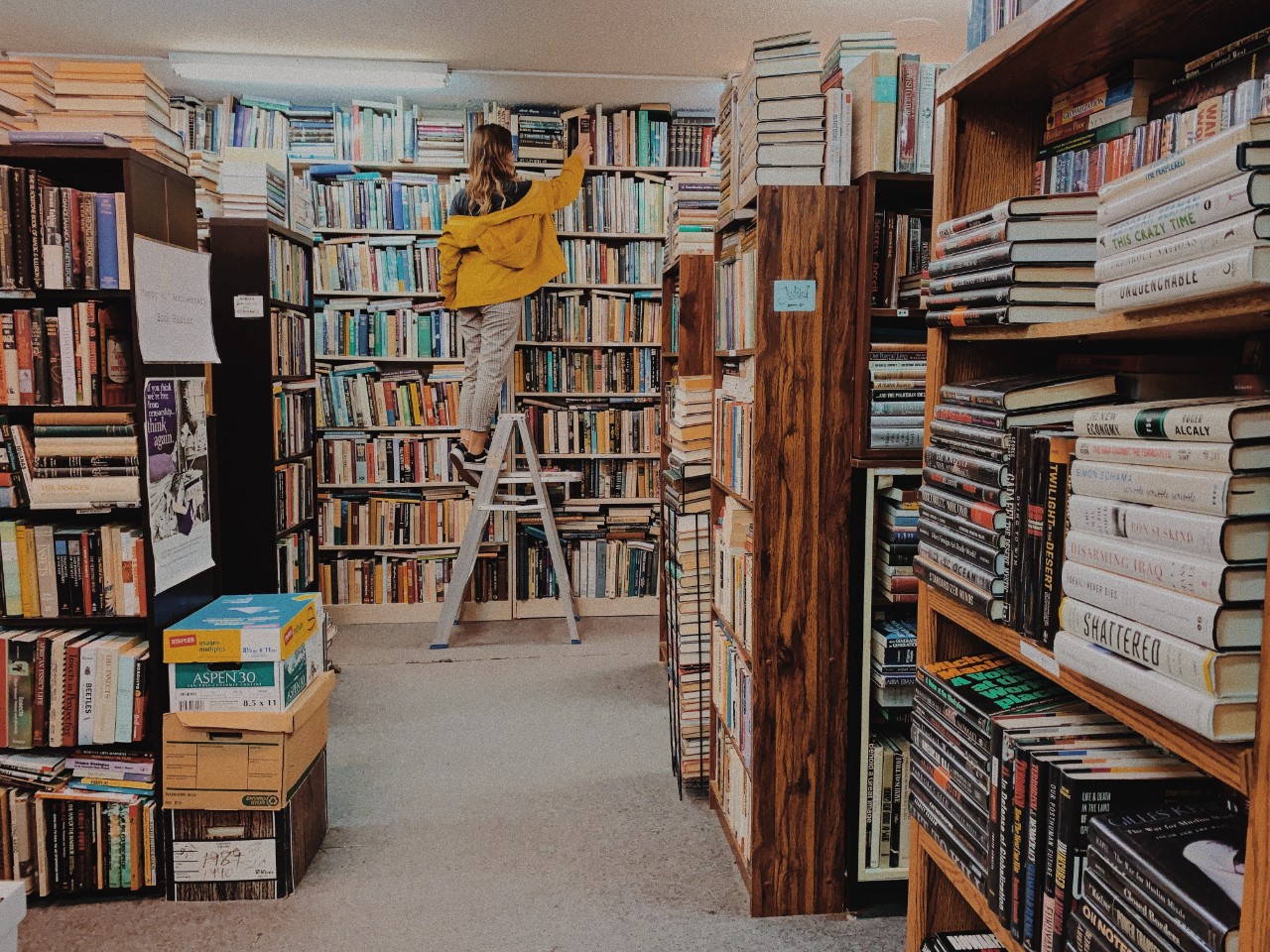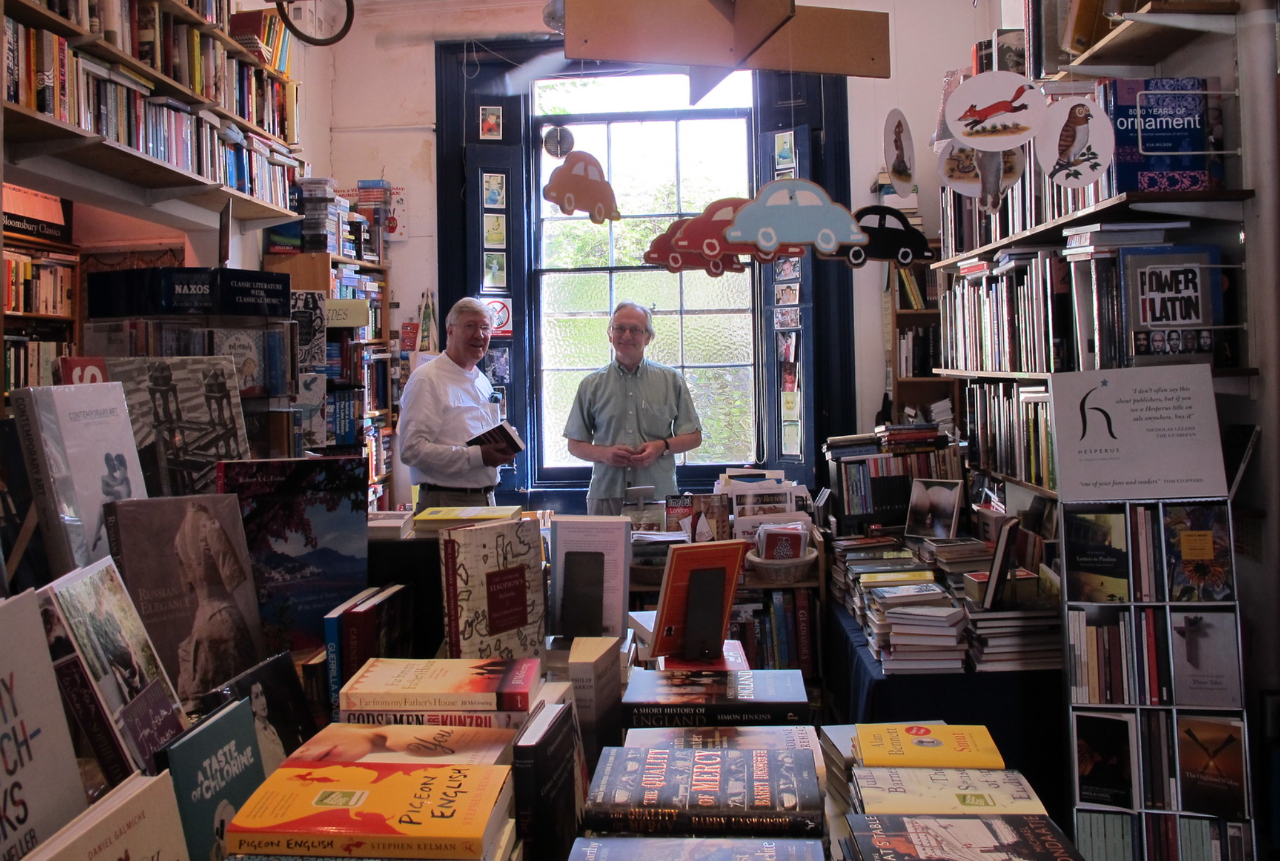2020 ended with more than 50 new bookshops in the UK and Ireland, a number confirmed by the Booksellers Association. In Italy – one of the earliest and hardest hit by the pandemic – bookstores reopened the second restrictions eased. People came flocking to them: it was a space where they could feel normal again, where they could escape.
Although considered “non-essential", the rising number of independent bookstores shows us that there might be something out-of-the-ordinary about these shops.
What was the impact of doors closing?
If you are a booklover – or a romantic soul – you'll agree when I say that wandering around a bookshop is a form of self-care. But when the pandemic forced closures, that nurturing feeling of visiting a favourite bookstore was taken away.
Walking into a bookstore and being immediately recognized by the owners is an experience you can’t put a price on - especially now that we miss human connection more than ever. More than remembering our names, most independent bookstores’ owners know our favourite books and genres, our last buys and are the best in recommending books - books they can specifically pick for its clients, providing them a curated catalogue and interesting talks about new books or authors.
With a lot of people finding time and (re)discovering pleasure in reading, global book sales were still particularly strong during the pandemic. However, much of those sales were either through Amazon or other chains that sell books.
Bruaá, an independent bookstore in Coimbra, is one of the bookstores that felt the effects of the pandemic.
“We continued to sell books through our online store, something that helped minimize the damage”, says Miguel Gouveia from Bruaá. However, Miguel admits that these numbers are distant from the ones they see when selling at the store.
“In our case, besides being a two-person structure, we're also a publisher and a graphic design studio, something that differentiates us from other independent bookstores. Some don’t even have an online store— and for them the impact was even bigger”.
“A specialized bookstore, like ours, lives from activities and initiatives around books and readers, we don’t rely exclusively on simple book sales”, says Francisco Vaz da Silva from Gigões & Anantes, another portuguese independent store that saw its sales decrease about 50%.
With the coronavirus pandemic; gatherings, national and international literature and education meetups, book presentations with authors, and other book-related activities were suspended. Located in Aveiro – also known as the Venice of Portugal – Gigões & Anantes also lost the familiar presence of tourists.
As seen in Gigões & Anantes and Bruaá, being independent comes with the freedom of having your own concepts, personalities, and rules – Térmita is no different.
Hugo Brito and Miguel Seabra are responsible for an independent called Térmita – which means “termite” in Portuguese. Alongside Hugo Miguel Santos, they defied all odds in 2020, by helping Térmita gain a second life; all from an old wood warehouse in Porto.
Térmita was built for a personal and close sale and with no other option than selling online, the pandemic may have had a bigger impact than the one Hugo and Miguel can measure.

Redefining the weight of culture: a Portuguese perspective
“In Portugal, there is still a lot of “cheating” in the book business, the fixed price law isn’t always followed, so competition is not fair. All the things you'd expect to happen in an unregulated market, happen”, says Francisco, who is very apprehensive about the future of independent bookstores.
Unfortunately, cultural centres and institutions have long been a featherweights competing against giants for financial support. But no one can deny the importance culture has in our lives.
“Independent bookstores are a very unique place, a place where more than an exchange of a measurable commodity — a book — occurs. Through their doors you can find community spaces, where the exchange of ideas has an impact; and if they're especially good ideas, the impact is even greater”, says Hugo Brito.
You can buy books anywhere, but you can’t buy the sense of community independent bookshops have built. From developing personal relationships with customers, to helping them discover up-and-coming authors and unexpected titles, booksellers are reframing their role as intellectual centres for coming together.
“People between the ages of 20 and 30 prefer physical books to digital books – digital ones seem to be more popular with people between the ages of 40 and 50, says Hugo Brito. “However, I also feel that bookstores will need to position themselves well to reach loyal clients— maybe through an appropriate and original catalogue.”
“The future of independent bookshops is hard to predict, we’ll need to join forces, something that happened in Portugal recently, with the formation of RELI”, says Miguel Gouveia.
RELI is an association of independent bookstores, taking the lead from associations around the world.
The association wants to guarantee culture is universally accessible, while championing the survival and autonomy of its independent bookstores— who have an important job in the cultural cohesion of a community. They believe that through free and critical thinking; bookstores have an important role in education, information-sharing, and entertainment.

The key “C’s” in the comeback story
Meanwhile in the U.S., the American Booksellers Association increased its members from 1,635 to 1,701 since May 2020. This number was a combination of new bookstores and existing stores that hadn't been part of the trade group, proving that coaboration is needed to overcome hard times — and that independent bookstores are clearly telling a comeback story.
This resurgence of independent bookstores in a technological era piqued the interest of Ryan Raffaelli, an assistant professor in the Organizational Behaviour unit at Harvard Business School, who set out to discover how independent bookstores reinvented themselves and survived in spite of tech giants like Amazon and other online retailers.
Raffaelli identified 3 “C’s” that are behind independent bookstores resurgence: community. curation, and convening.
Independent bookstores have been building a community by establishing themselves as a gathering place and promoting core values and topics that are relevant to the consumers living nearby; in fact, a big factor that drives sales in these stores is the bookstores’ communal identity.
At the same time — and as Hugo Brito mentioned — another key part of bookstores’ success is a curated inventory, and providing a more personal customer experience. Using their talent to compete with platforms like Amazon, booksellers live by the belief that “the real pleasure in bookselling comes in pairing the right book with the right people” and rely on their “unique ability to find unexpected hidden gems in their stacks that online algorithms have yet to fully replicate”, as Ryan Raffaelli said.
Last but not least, booksellers have reframed the way we look at independent bookstores; they are more than ordinary shops where we buy books. They've established themselves as intellectual centers to convene, gather, and have conversations with people who have similar interests.
“Customers have come to recognise independent bookstores as a valuable form of brick-and-mortar retail in their communities”, says Raffaelli, and these 3 C’s explain, at least, part of the why.
As a booklover myself, I am looking forward to seeing what independent bookstores have in store for us - I am sure we will continue to see the resilience, resourcefulness, and dedication to reinvent themselves and thrive.
“Historically, independent bookstores were always capable of reinventing themselves and resisting, because besides selling books, these are spaces of discovery, an essential business to the balance of the communities”, says Miguel Gouveia.
Written by Ana Sofia Mergulhão





